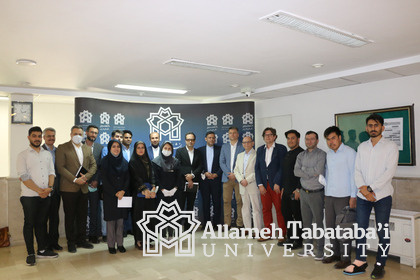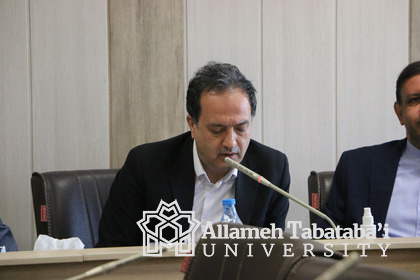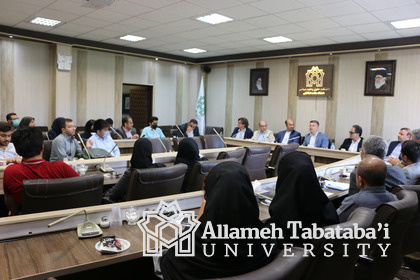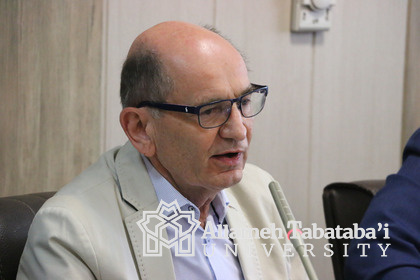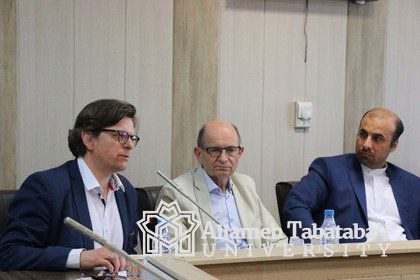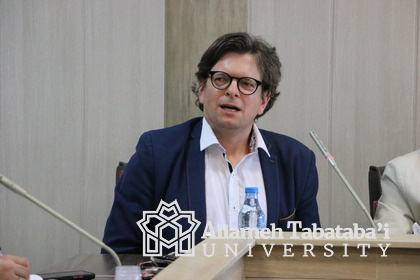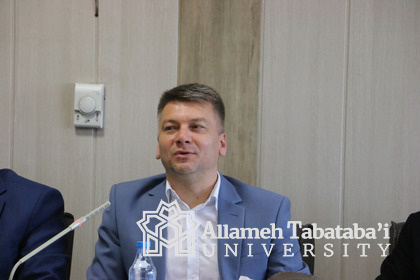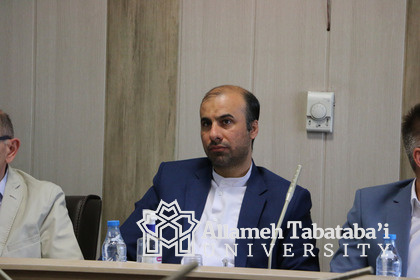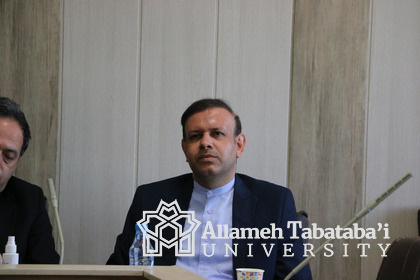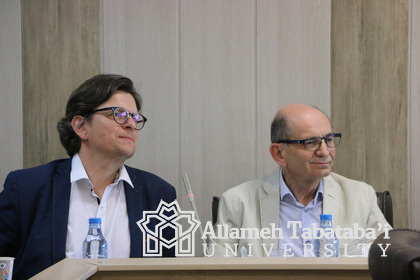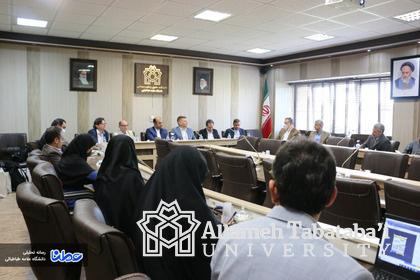ATU holds the International Seminar in "The Ukraine War from the Viewpoint of Iran and Europe"
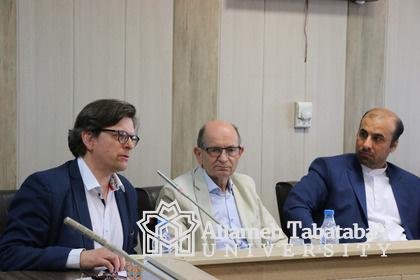
Report by the Directorate for International Academic Cooperation –
On Sunday, 29 May 2022, thanks to the joint efforts made by the Faculty of Law and Political Sciences and the Directorate for International Academic Cooperation, ATU held an International Seminar entitled "The Ukraine War from the Viewpoint of Iran and Europe". The seminar was attended by professors and postgraduate students, and three professors from Poland delivered speeches.
At the beginning of the event, Dr Andrzej Stelmach, a faculty member at Adam Mickiewicz University (UAM, Poznan, Poland), pointed to the cultural and linguistic commonalities between Ukraine and Poland and said: "We understand the crisis the Ukrainian people and refugees are experiencing because we have experienced similar situations. We are facing a labour force shortage, and Ukrainian immigrants and refugees can contribute to economic growth in Poland. Poland is also seeking financial assistance from the European Union to resolve the crisis."
Regarding the importance of relations between Poland and Iran, he added: "We seek to revive the JCPoA (in Persian Barjaam) because Russia does not sell oil to Poland, and we need Iranian oil. Therefore, we want to have economic cooperation with Iran. But Poland is facing limitations due to the US sanctions imposed against Iran. Currently, energy and gas prices have had a sharp rise in Poland. If sanctions are lifted, Iran could sell natural gas to Europe and Poland and help the continent become more energy independent."
Dr Przemyslaw Kazimierz Osiewicz, another faculty member at the Polish university, said: "For us, the conflict between Russia and Ukraine is not an intervention. Russia claims it is an intervention, but we believe it is an invasion from the Russian side. It is similar to the US invasion of Iraq in 2003."
"If a country does not like its neighbour's policies," Dr Osiewicz added, "there is no reason to attack it. We are critical of Russia's foreign policy and Putin's views on Eastern Europe in Poland. However, contrary to some Western countries, like Italy and Germany, who have somewhat supported Putin and justified his policies, we, like Iran, have experienced Russian aggression and occupation in the past and do not trust Russia, accordingly".
He then appreciated the hospitality Iranians showed to Polish refugees in Iran during WWII and said, "We have now the same attitude towards Ukrainian refugees. Just as Iran helped the Polish refugees, we want to help the Ukrainian refugees. We have several security and political issues, but we must remain focused on our cooperation."
He then noted that the EU wants to revive the JCPoA and reduce tensions in the Middle East. Moreover, as previous efforts for mediation in the field of JCPoA have failed, there is a need for further mediations in JCPoA, and Poland can play a mediating role between Iran and the EU."
In the end of the session, Dr Radosław Fiedler, another Faculty Member from Adam Mickiewicz University, added that "In the past, Ukraine was a part of Poland, but after WWI, Ukraine tried to gain independence and this caused conflicts in Poland. When Germany occupied Ukraine, it promised to give them some territory, but it did not. After WWII, Ukraine became part of the Soviet Union, and Poland changed. Previously, Ukraine was a multinational country, but after the war, Ethnic minorities began to be marginalised. However, immediately after the collapse of the Soviet Union in 1991, Poland recognised the independence of Soviet republics, including Ukraine, Belarus, and the Baltic Republics."



